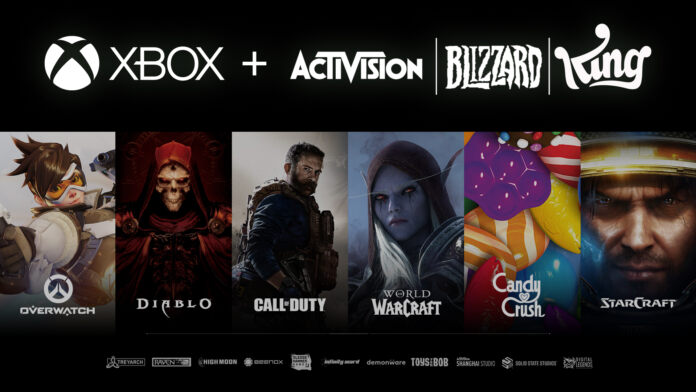A federal judge in San Francisco has denied the Federal Trade Commission's (FTC) request for a preliminary injunction to halt Microsoft's proposed $68.7 billion acquisition of Activision Blizzard. The decision allows Microsoft to proceed with the deal in the United States, despite a looming July 18 termination date. If the deal is not finalized by this date, Microsoft would be liable to pay Activision Blizzard a $3 billion termination fee.
Judge: Consumers Could Benefit
The FTC had argued that the merger could potentially harm competition in the video game industry. The FTC has also accused Microsoft of withholding information amid the Activision Blizzard investigation.
However, Judge Jacqueline Scott Corley found that the FTC had not demonstrated a likelihood of prevailing on its claim that the merger would significantly lessen competition. Instead, she pointed to evidence suggesting that the merger could lead to increased consumer access to Activision content, including the popular game Call of Duty.
Microsoft Gaming CEO Phil Spencer and Microsoft president Brad Smith expressed gratitude for the court's swift decision, stating that the evidence showed the Activision Blizzard deal is beneficial for the industry. Spencer also argued that the FTC's claims about console switching, multi-game subscription services, and cloud gaming do not reflect the realities of the gaming market.
1/We're grateful to the court for swiftly deciding in our favor. The evidence showed the Activision Blizzard deal is good for the industry and the FTC's claims about console switching, multi-game subscription services, and cloud don't reflect the realities of the gaming market.
— Phil Spencer (@XboxP3) July 11, 2023
Our statement on the mutual request with the CMA for a pause of our appeal in the UK: pic.twitter.com/8Aky2IJjxS
— Brad Smith (@BradSmi) July 11, 2023
Despite the court's decision, the FTC still has the option to file an appeal. However, it remains unclear whether the commission plans to do so. Meanwhile, Microsoft still faces an ongoing antitrust case by the FTC, as well as opposition from the Competition and Markets Authority in the United Kingdom, which moved to block the acquisition in April.
In response to the court's decision, Microsoft and Activision Blizzard have expressed their commitment to addressing regulatory concerns and enhancing competition in the gaming industry. Activision Blizzard CEO Bobby Kotick stated that the merger “will enable competition rather than allow entrenched market leaders to continue to dominate our rapidly growing industry.”
UK Regulatory Hurdle
The judge's ruling now allows Microsoft to close its Activision Blizzard deal ahead of the July 18th deadline, but only if the company is willing to close around the UK or if the Competition and Markets Authority (CMA) is willing to negotiate some form of remedy. The UK regulator moved to block Microsoft's proposed acquisition in April, and Microsoft is currently appealing that decision with a hearing set to start on July 28th. Minutes after Judge Corley's decision, both the CMA and Microsoft have agreed to pause their legal battle in the UK to negotiate how the Activision Blizzard deal could be modified to address the CMA's cloud gaming concerns. The CAT will need to approve this pause, but it increasingly looks like all parties are willing to secure a remedy in the UK.
Regulatory Approvals in Other Countries
Microsoft's proposed acquisition of Activision Blizzard recently received major approval from South Africa's Competition Tribunal, adding to a series of regulatory approvals that Microsoft has received for the deal. In May, the European Commission and China's competition regulator both cleared the deal. However, the UK's Competition and Market Authority (CMA) rejected the deal, leading Microsoft to consider bypassing the UK order and pressing ahead with the deal, or alternatively, withdrawing Activision from the UK market.
In the midst of the acquisition process, Activision Blizzard has faced its own legal challenges. The company has recently settled a lawsuit with the Department of Justice over accusations of financially punishing Call of Duty and Overwatch esports teams through a “Competitive Balance Tax”. The settlement requires Activision Blizzard to refrain from putting any caps or limits on salaries of esports players or teams.
Despite the ongoing antitrust scrutiny, Microsoft has received “unconditional approval” from China for its plan to acquire Activision Blizzard. This clearance has added complexity given the requirement in mainland China for game-makers to work with a Chinese publisher for releasing titles in the country. Popular Activision Blizzard franchises such as World of Warcraft, the StarCraft series, Overwatch, and Diablo have been suspended earlier this year due to a disagreement between Activision subsidiary Blizzard Entertainment and its Chinese partner, NetEase.






